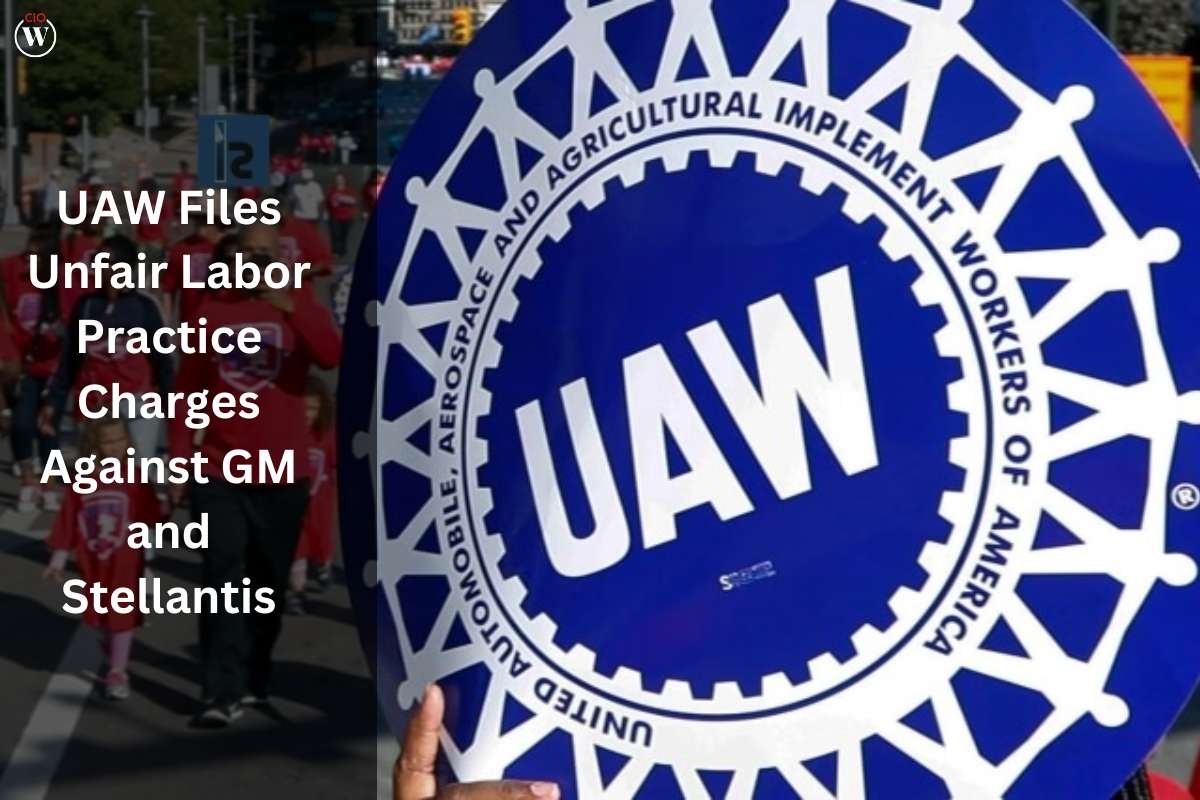The United Auto Workers (UAW) union has filed unfair labor practice charges against the automotive giants General Motors (GM) and Stellantis. UAW President Shawn Fain announced on Thursday night that the charges were made due to the companies’ alleged failure to engage in sincere and timely negotiations, a violation of labor laws.
The Dispute Escalation & Responses
The United Auto Workers (UAW) decision to escalate the dispute follows what the union claims is a lack of responsiveness from both GM and Stellantis regarding their bargaining demands. Notably, Ford Motor has been spared from the UAW’s complaint, as the company did respond, albeit with a counterproposal that President Fain heavily criticized.
Addressing the issue during a Facebook Live session, Fain expressed his concern, stating, “GM and Stellantis’ refusal to negotiate in good faith is not just counterproductive, it’s also illegal.” He went on to emphasize that the union had filed unfair labor practice charges against both companies with the National Labor Relations Board (NLRB).
Responding to the allegations, Stellantis conveyed shock and disappointment at Fain’s claims. In an email statement, the company denied any lack of good faith in negotiations and labeled the charges as baseless and distracting.
GM echoed a similar sentiment in their statement, expressing surprise at the NLRB charge. Gerald Johnson, GM’s Executive Vice President of Global Manufacturing, stated, “We have been hyper-focused on negotiating directly and in good faith with the United Auto Workers (UAW) and are making progress.”
The NLRB, however, remained tight-lipped about further details regarding the filings.
Fain’s Criticism
Fain’s criticism also extended to Ford, branding their proposal as “concessionary.” He highlighted Ford’s offer of a 9% wage increase over four years, one-time lump sum bonuses, and the use of lower-paid temporary workers. Ford, in response, released a detailed statement by CEO Jim Farley, offering insights into their proposal.
Ford’s statement included comparisons to previous negotiations, outlining a 15% guaranteed combined wage increase, lump sum payments, and other improvements over the previous contract. CEO Farley stressed the importance of the deal for both workers and the company’s future success.
UAW’s Ambitious Approach
The United Auto Workers (UAW) demands have been ambitious, including a 46% wage increase, reinstatement of traditional pensions, cost-of-living adjustments, a shorter workweek, and enhanced retiree benefits. The rift between the UAW and automakers remains unresolved, raising concerns about the stability of the industry and the well-being of its workforce.









